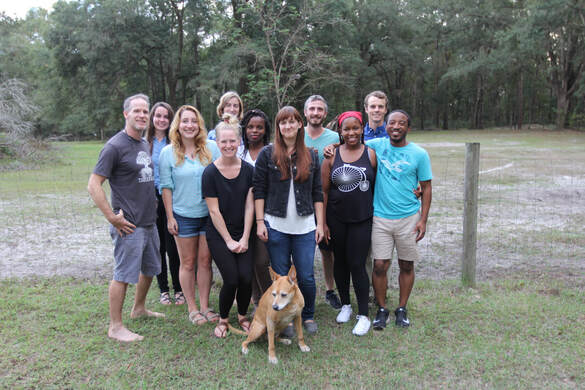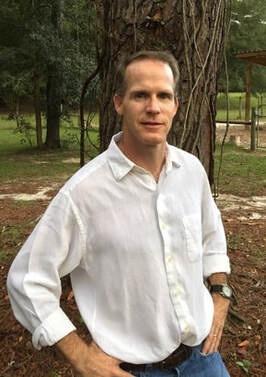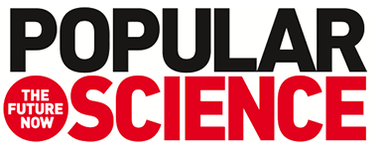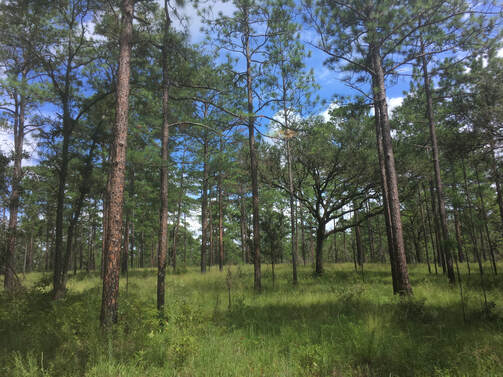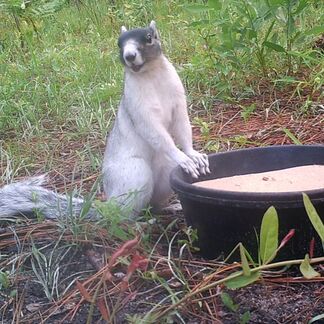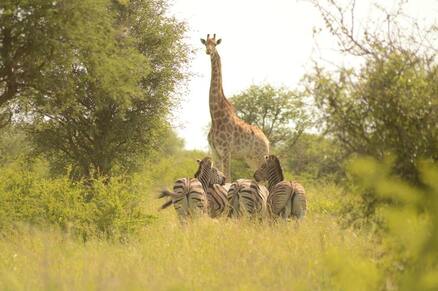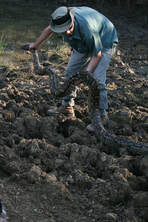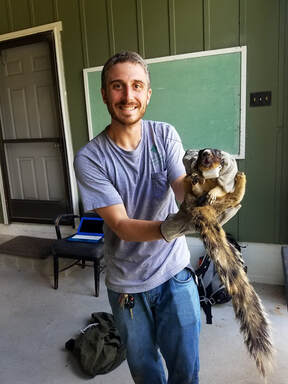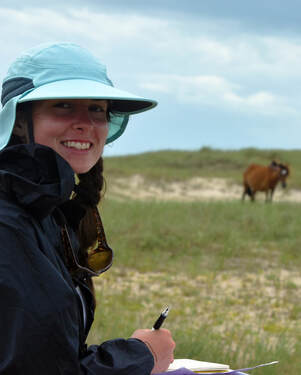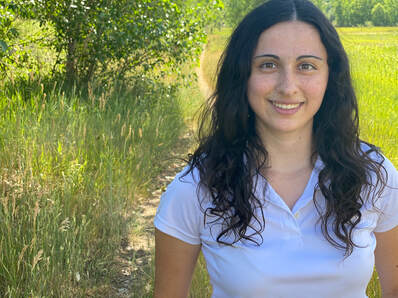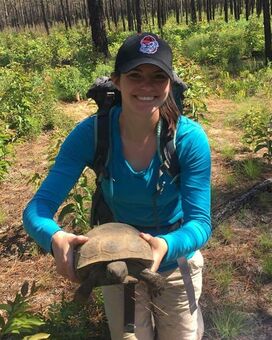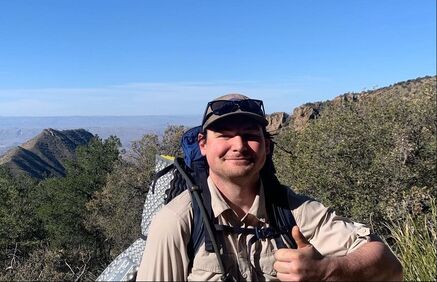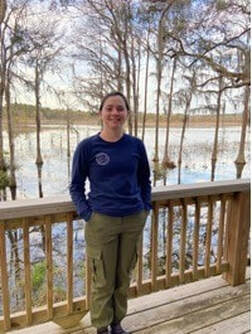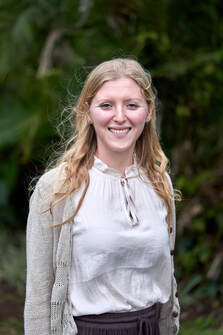The Mccleery labDepartment of Wildlife Ecology and Conservation The University of Florida |
Welcome to the Mccleery lab
Our goals are to foster healthy populations and communities of wild animals and to advance the relationship between humans and the environment. Through research and teaching we provide regional and international leadership in mammalian conservation, global change ecology, and endangered species management.
Research PhilosophyThe precipitous decline of the planet’s vertebrate diversity has created immense challenges for human well-being and the maintenance of ecological functionality on our rapidly changing planet. Our research program focuses on understanding the influence of large-scale anthropogenic changes to the environment (e.g., urbanization, intensive agriculture, shrub encroachment, defaunation, sea-level rise, invasive species) on wildlife populations and communities. Taking an interdisciplinary approach, we work to understand how anthropogenic drivers alter communities and ecological processes that are important to humans. We also work to understand how to recover endangered species and manage wildlife into human-dominated landscapes, such as agricultural and urban settings.
|
Teaching PhilosophyToday’s students are increasingly separated from nature, with minimal understanding, experience, skills, and confidence working in natural settings. Without an ability to understand and appreciate the natural processes and recourses needed to maintain biodiversity, feed a growing population, and enhance human well-being, our students will be unprepared to tackle their generation’s most pressing issues. Our students are awash in scientific information, but the challenge is to teach them to comprehend and synthesize this information, foster critical thinking skills, and apply that knowledge to novel situations. Finally, as the spread of information has accelerated the process of globalization, we are increasingly connected to economic, social, and political activity outside of our borders. To thrive in this new reality, our students must be able to work effectively in a cross-cultural and global environment. To address these challenges, we believe it is critical to engage students in natural setting, foster active learning and incorporate field activities into our classes. To promote problem solving and engagement, we often use a flipped classroom approach and emphasize experiential learning techniques. To enhance students’ cultural intelligence, we created and continue to lead a study abroad classes to Eswatini and South Africa. Additionally, we have run intensive undergraduate research programs (NSF funded) that pair students with African researchers. Today more than ever we also believe that successful instruction necessitates dynamic teachers. As teachers, we continually adapt and change to our students’ needs, technological advances, job opportunities, and political and social realities. |
Lab News
March 2024
Rebecca accepted a position as Assistant Professor of Biology at Mercer University and will start in the fall of 2024.
Alex was quoted in the Washington Post and National Geographic.
Rebecca completed fieldwork and will defend her dissertation in August 2024.
July 2023
Congratulations to Maggie and Alex, now Dr. Jones and Dr. Potash, on successfully defending their dissertations! You can watch Alex's exit seminar on our YouTube channel.
We welcome the newest McCleery Lab Member, Annabel Potash, who was born shortly after midnight to Friederike and Alex on Father's Day!
Rebecca accepted a position as Assistant Professor of Biology at Mercer University and will start in the fall of 2024.
Alex was quoted in the Washington Post and National Geographic.
Rebecca completed fieldwork and will defend her dissertation in August 2024.
July 2023
Congratulations to Maggie and Alex, now Dr. Jones and Dr. Potash, on successfully defending their dissertations! You can watch Alex's exit seminar on our YouTube channel.
We welcome the newest McCleery Lab Member, Annabel Potash, who was born shortly after midnight to Friederike and Alex on Father's Day!
Recent Publications
For access to all McCleery Lab publications, click here
Bold names indicate current and former McCleery lab members
For access to all McCleery Lab publications, click here
Bold names indicate current and former McCleery lab members
Boone, W. W., B. A. Bankovich, B. E. Reichert, M. B. Watson, and R. A. McCleery. 2024. Frequent prescribed burns reduce mammalian species richness and occurrence in longleaf pine sandhills. Forest Ecology and Management 553:121596 | PDF
Fletcher, R. J., A. O’Brien, T. F. Hall, M. Jones, A. D. Potash, L. Kruger, P. Simelane, K. Roques, A. Monadjem, and R. A.
McCleery. 2023. Frightened of giants: fear responses to elephants approach that of predators. Biology Letters 19:20230202 | PDF
McCleery. 2023. Frightened of giants: fear responses to elephants approach that of predators. Biology Letters 19:20230202 | PDF
McCleery, R., R. Guralnick, M. Beatty, M. Belitz, C. J. Campbell, J. Idec, M. Jones, Y. Kang, A. Potash, and R. J. Fletcher. 2023. Uniting Experiments and Big Data to advance ecology and conservation. Trends in Ecology & Evolution 38:970–979 | PDF
Potash, A. D., L. M. Conner, M. Clinchy, L. Y. Zanette, and R. A. McCleery. 2023. Prey species increase activity in refugia free of terrestrial predators. Oecologia 201:661–671 | PDF
Taillie, P. J., J. Hartfelder, A. Potash, D. Pienaar, C. Greaver, P. Viljoen, R. J. Fletcher, S. Ferreira, and R. A. McCleery. 2023. Hippos alter their aggregations to mitigate density‐dependent drought effects. Austral Ecology 48:969–982 | PDF
Accolades & Awards
Rebecca was selected by the Florida Chapter of the Wildlife Society as the 2024 recipient of the Courtney A. Tye Memorial Graduate Student Scholarship.
Southeastern Fox SquirrelsWe study a variety of aspects of southeastern fox squirrel ecology, including fox squirrel movement (in conjunction with NEON sites), behavior, genetics, and conservation initiatives. You can find out more about how we use NEON sites to transform wildlife research by clicking here.
|
South African LandscapesWe have ongoing long-term research in South Africa and Eswatini (formerly Swaziland) focusing on everything from plant communities to rodent monitoring to megaherbivore impacts on ecosystems.
|
Invasive pythonsWe research the effects of invasive Burmese pythons on mammal communities in the Florida Everglades ecosystem. We partner with various state and federal agencies, along with private landowners to determine how pythons are impacting native animal communities and try to identify novel ways to remove invasive pythons from the ecosystem.
|
For more information about our research, check out our publications, follow us on Twitter and YouTube, or contact us directly.
Please contact lab members directly for inquiries about specific research or opportunities to help out on a project
Click here to see McCleery Lab alumni
Click here to see McCleery Lab alumni
postdocs
Alex Potash
|
maggie jones
|
|
Alex is originally from Burlington, VT, and joined the McCleery lab in 2016. He completed his MS in 2018 and continued into a PhD position in the McCleery Lab. Alex is interested in predator-prey relationships, with a focus on understanding how fear of predation affects ecosystem process.
Google Scholar ResearchGate Email: [email protected] |
Maggie is from Elkins, WV and started her PhD with the McCleery lab in 2018. She completed her MS in Wildlife Ecology at Iowa State University, where she studied the effects of immunocontraception on feral horse behavior and physiology. Her PhD research centers around plant-herbivore interactions in African savannas, specifically focusing on the effects of different herbivores on savanna tree demography.
Email: [email protected] |
Phd Students
Monica Lasky
|
Rebecca mckee
|
|
Monica is from Raleigh, NC and joined the McCleery Lab in 2022. She completed her BS in Zoology at NC State University and MS in Ecology at Colorado State University. Monica is broadly interested in wildlife ecology, and identifying mechanisms driving wildlife behavior and species interactions.
Website Email: [email protected] |
Rebecca joined the McCleery Lab in the fall of 2020. Originally from the mountains of North Carolina, Rebecca completed her B.S in environmental studies at Davidson College and her M.S. in wildlife ecology and management at the University of Georgia in 2019. She is broadly interested in wildlife ecology and animal behavior. Her PhD research will focus on the interactions of mammals and invasive pythons in the Everglades.
Website Google Scholar ResearchGate Email: [email protected] |
masters students
Storm miller
Storm did his undergrad at Michigan State University obtaining a degree in Fisheries and Wildlife with a concentration in conservation biology. There, he studied a variety of subjects ranging from black bears population dynamics to Lyme disease ecology to human hunting modes. His masters research focuses on using different mammalians lures to increase detection and capture rates of invasive Burmese pythons in the Everglades. Further, he is interested in camera trap research and the applications of artificial intelligence in enhancing ecologist's ability to expedite photo review.
Email: [email protected]
Email: [email protected]
Undergraduate students
marin chester
Marin is from Granger, Indiana and joined the McCleery lab in 2023. She is pursuing a Bachelor’s degree in Wildlife, Ecology, and Conservation and is passionate about restoring communities of endangered mammalian species as well as communicating fascinating wildlife facts to her friends and family. When not doing work, she enjoys reading long fantasy novels, enjoying board games with friends, and playing Ultimate frisbee.
|
charisse sproha
Charisse is an undergraduate student in her fourth year at UF in Wildlife Ecology and Conservation where she focuses on mammals and birds. In the McCleery Lab, Charisse works with camera trap imagery to detect African wildlife and determine the biodiversity of savanna ecosystems in the absence of elephants. Charisse has also been involved in research with the landscape of fear in fox squirrels and cotton rat behavior. In the future she is interested in working with wildlife behavior and species interactions.
|
[email protected] | (352) 846-0566
|
Feel free to contact Dr. McCleery using the form below.
|
|
|
For website issues, please contact Alex Potash
|
314 newins-ziegler hall
|
"Our ability to perceive quality in nature begins, as in art, with the pretty. It expands through successive stages of the beautiful to values as yet uncaptured by language."
-Aldo Leopold
